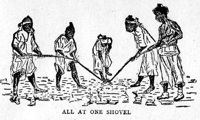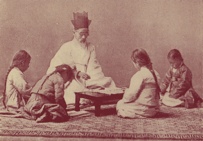Greetings. I’m a PhD student at the School of Oriental and African Studies, London University. I am approaching the end of my PhD, or at least the beginning of the end. The topic of my thesis is merchants and government the late Chosŏn period. More specifically, the political economy of a silk merchants’ guild in the late nineteenth century Seoul.
From nineteenth century economic history, my interests broaden out in a number of different directions. In terms of modern history I’m particularly interested in the social and economic history of North Korea as well as the formation of nationalist narratives in North and South Korea and the development of social movements and the left on the Korean peninsula from the 1920s through to the present day.
I’m also very interested in historical theory and its application to East Asian history as part of the general project for the universalisation and de-[euro]centralisation of human history. In this context, I’ve written in the past about Korean Marxist historiography and its limitations. I hope to introduce here some semi-formed thoughts on historical theory and Korean history on which people will hopefully want to comment.
Of course, I’m also fascinated by Korean nationalism and nationalist historiography – who wouldn’t be when it comes to Korean history?
You can find my personal blog on the sidebar of this site where I will continue posting somewhat more polemical, political, non-historical, non-Korea-related and occasionally personal entries. I will try not to double-post to the two blogs, but on occasion I may recycle material from one to the other so similar posts might appear.



